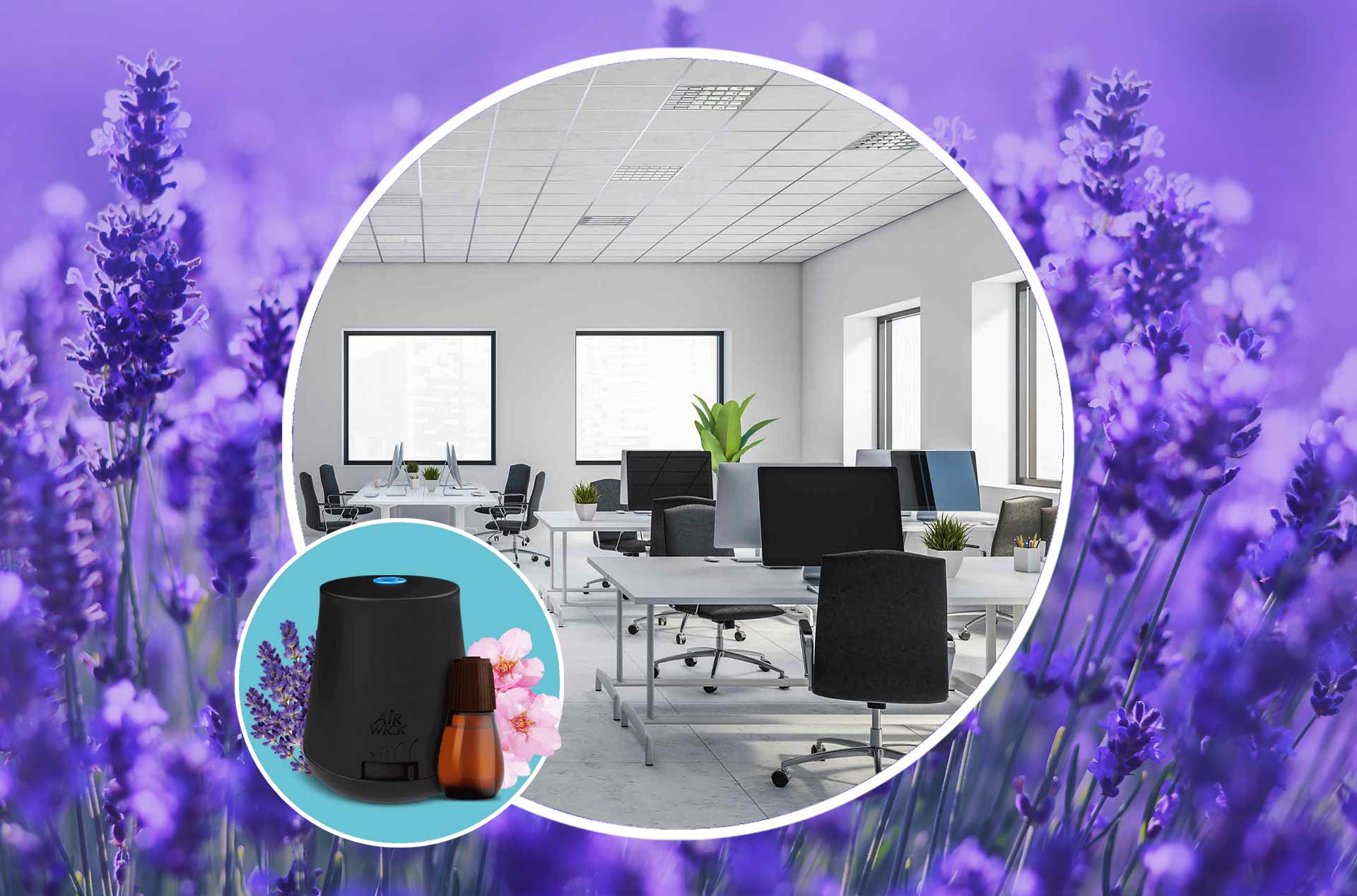

The power of scent in the workplace is often overlooked, yet it can have a profound effect on employee mood and productivity. Studies have shown that the psychology of smell plays an important role in how we feel and behave. From pleasant aromas that can boost morale to distracting odors that can lead to fatigue, understanding the power of scent can help employers create an environment that positively impacts their team while creating a professional environment. Let’s look at Benjamin Office’s Whys and Hows of introducing scent to the workplace.

Scent may not be the first thing that comes to mind when you think about workplace productivity, but it can have an enormous and immediate impact on employee mood and satisfaction. Just like your revitalized breakroom, the right scents can enhance mood and reduce stress, while improving focus and productivity. By incorporating pleasant fragrances into the workplace, employers can create a more positive and enjoyable environment for their team.
Aromatherapy is a holistic healing practice that utilizes scent to promote physical, emotional, and mental well-being. The science behind aromatherapy is based on the following principles:
When we inhale smells from candles, essential oils, or other scents, the molecules enter the nasal passages and interact with the olfactory system, which is responsible for our sense of smell. The olfactory system is connected to the brain’s limbic system, which plays a crucial role in emotions, memory, and behavior. This connection is the basis for the emotional and psychological effects of aromatherapy.
Derived from various plant parts, such as leaves, flowers, bark, and roots, essential oils are a popular way of adding pleasant smells to the workplace. These oils contain complex mixtures of chemical compounds, including terpenes, phenols, and esters, which can have physiological effects when inhaled or applied to the skin. For example, lavender essential oil contains linalool and linalyl acetate, which are known for their calming properties.

With Benjamin Office, introducing fragrance into the workplace doesn’t have to be complicated. Here are some easy ways to create a pleasant scent in your office.
Live plants, fragrant flowers, and scented candles are all popular ways to remove unpleasant odors and add enjoyable smells. The strategic placement and thoughtful use of these products will turn any drab and dour office into a pleasant, enjoyable environment designed with employee comfort in mind.
Just as scent can be a powerful motivator, it can also be distracting or overwhelming when applied incorrectly. Different people may have different reactions to certain scents, so it’s essential to find a balance that works for everyone. Consider these best practices when you introduce aromatherapy and scent to your workplace.
Instead of overwhelming the entire office with a strong fragrance, begin by introducing subtle scents that are unlikely to cause any discomfort. Consider using a deodorizer that neutralizes odors without adding too much fragrance. This way, you can create a pleasant atmosphere without overpowering anyone’s senses.
To avoid any potential conflicts, designate specific areas where scent can (or cannot) be used. For example, you could have a relaxation room where employees can go to unwind while enjoying a particular fragrance. Restrooms are obvious candidates for deodorizers and fresh scents, but you may consider removing scents from the kitchen, as they might overwhelm workers trying to enjoy lunch. You’ve already created multiple types of workspaces in the office to accommodate different work styles; the same should be done for aromas. By creating multiple types of environments, you allow those who appreciate scents to enjoy them without affecting those who prefer a scent-free environment.
It’s important to regularly gather feedback from employees to ensure that the chosen scents are well received. Conduct surveys or encourage open communication to understand how the scents are impacting the workspace. If necessary, be open to adjusting or changing the scents based on the feedback received.
By following these best practices and relying on Benjamin Office, you can create a shared workspace environment that considers the preferences and sensitivities of all employees. Remember, the goal is to create a pleasant and inviting atmosphere for everyone to work in, so being considerate of each individual’s needs is key.
